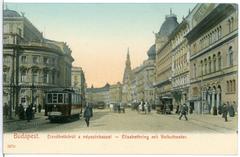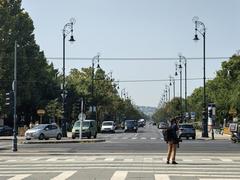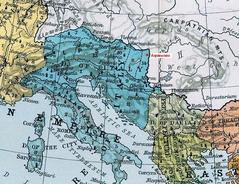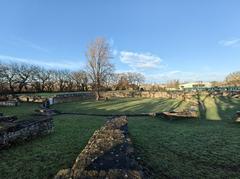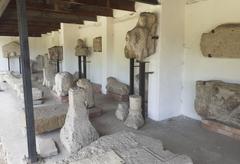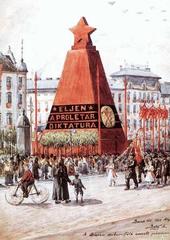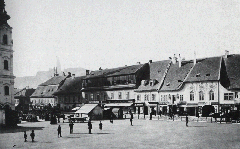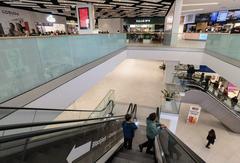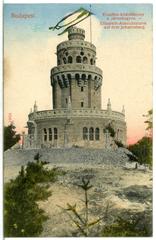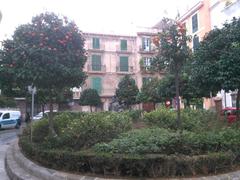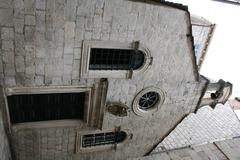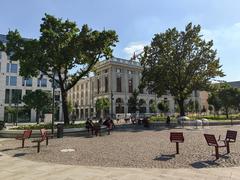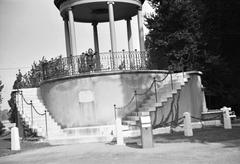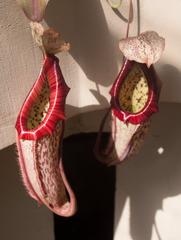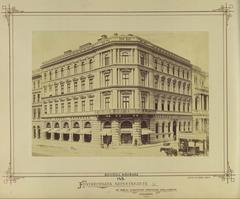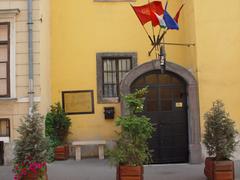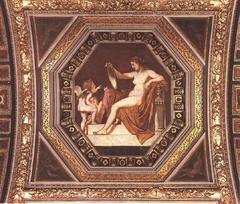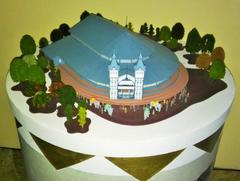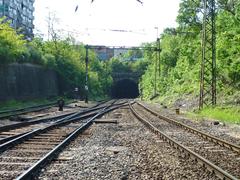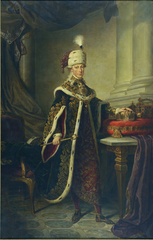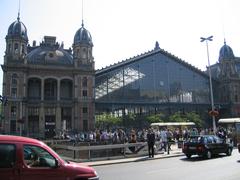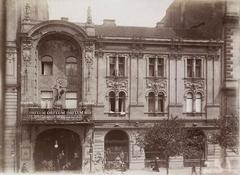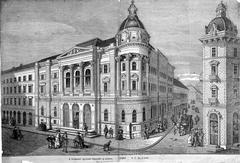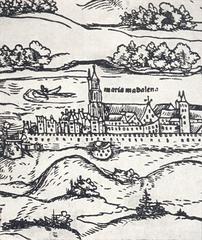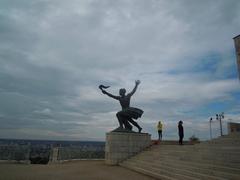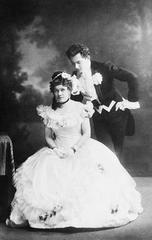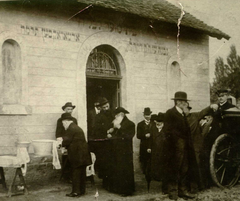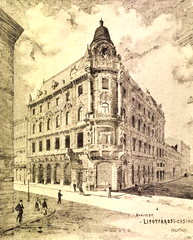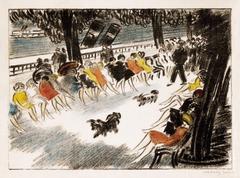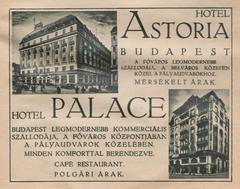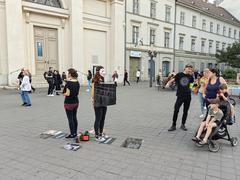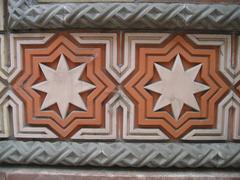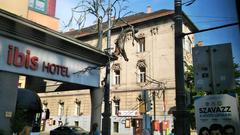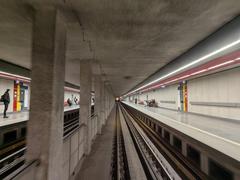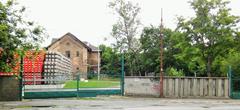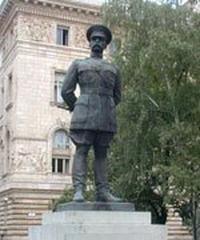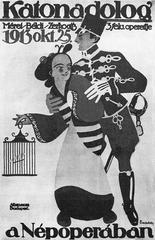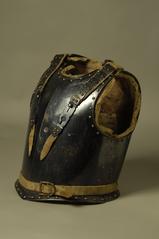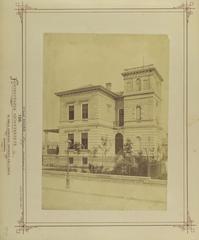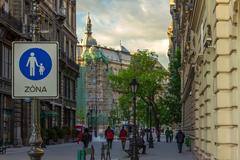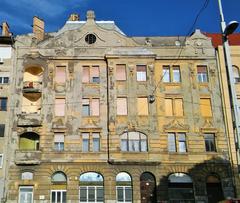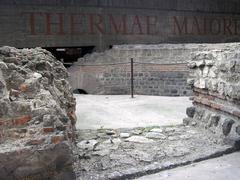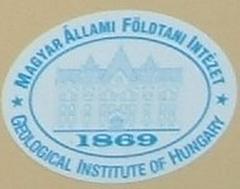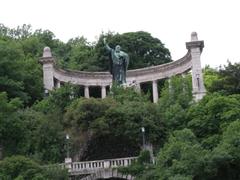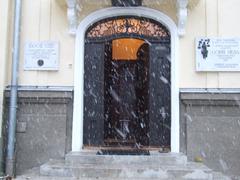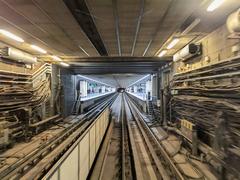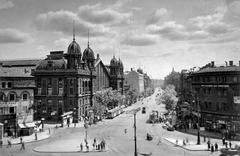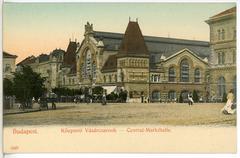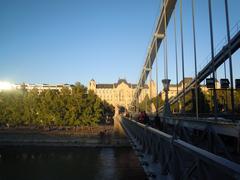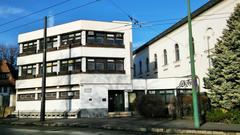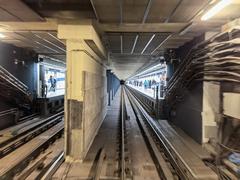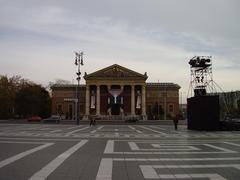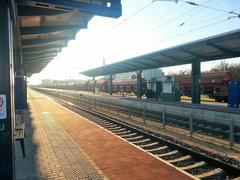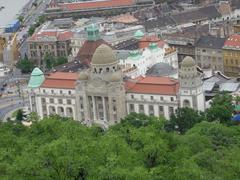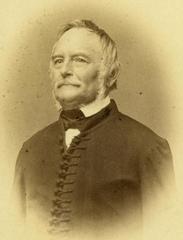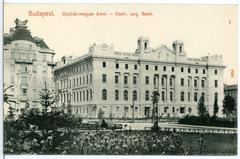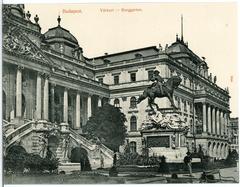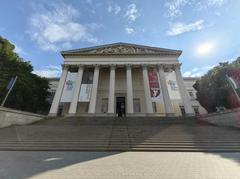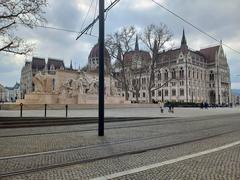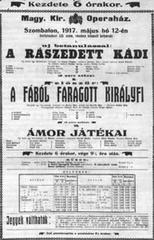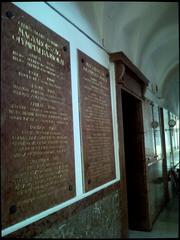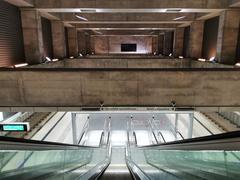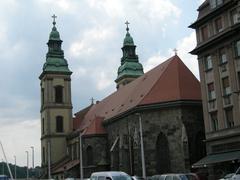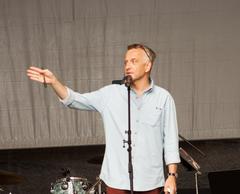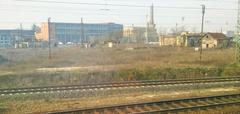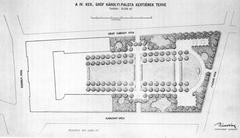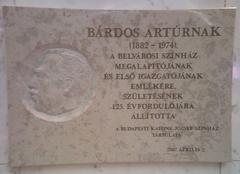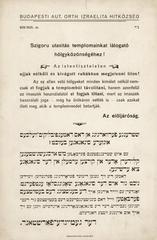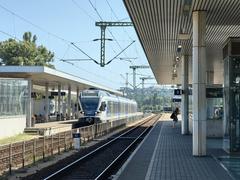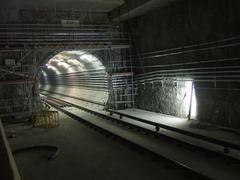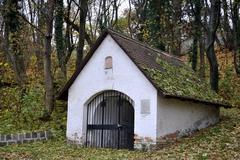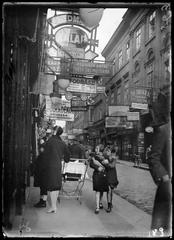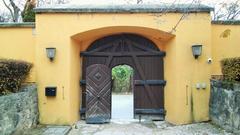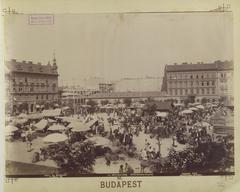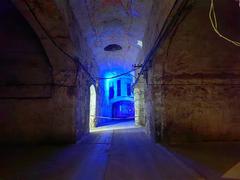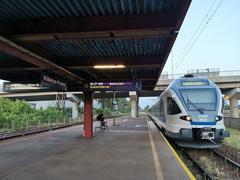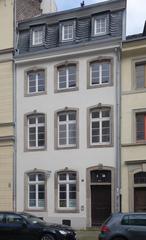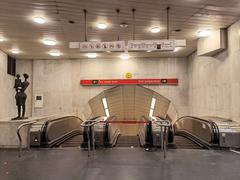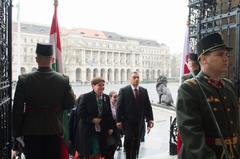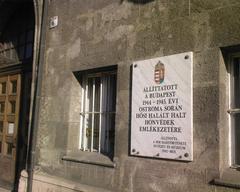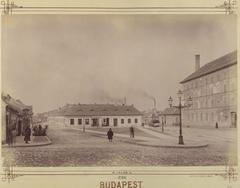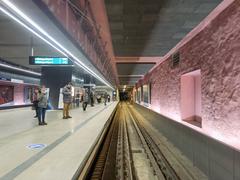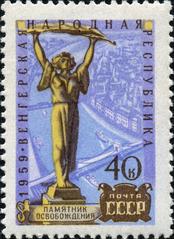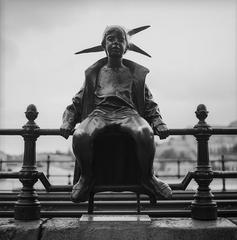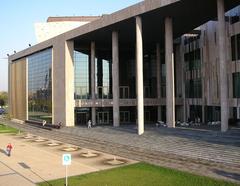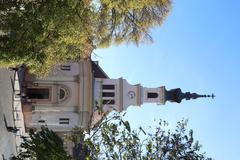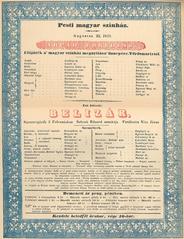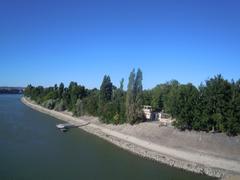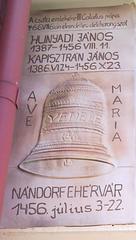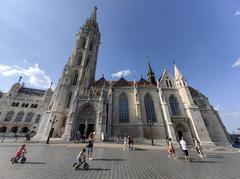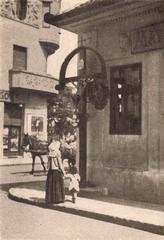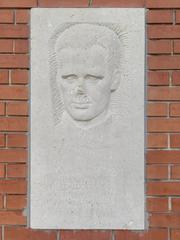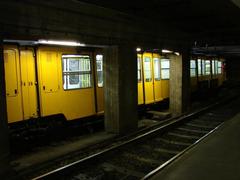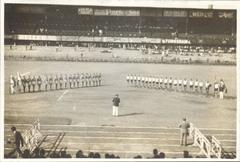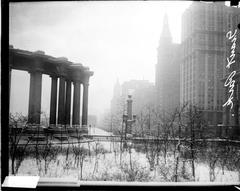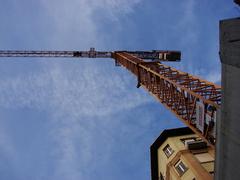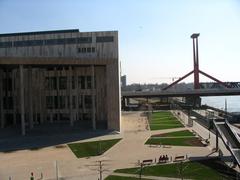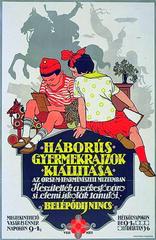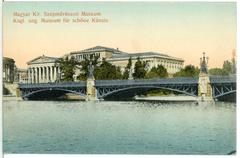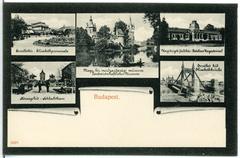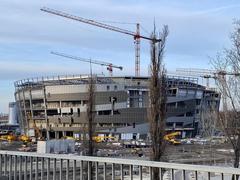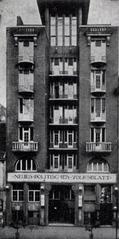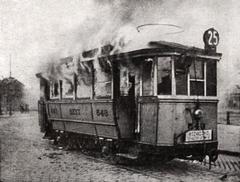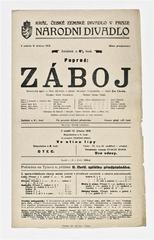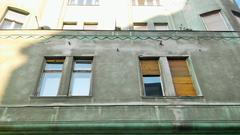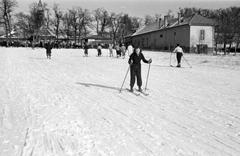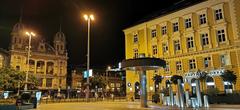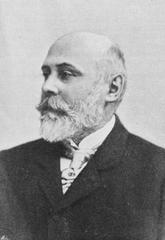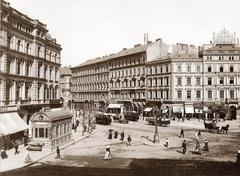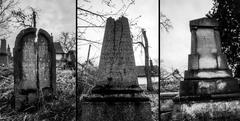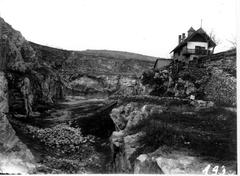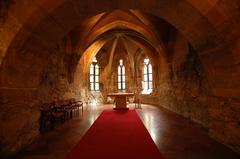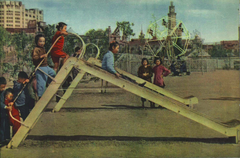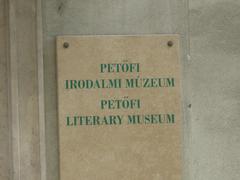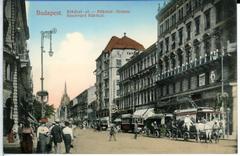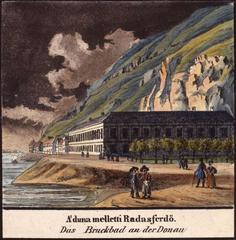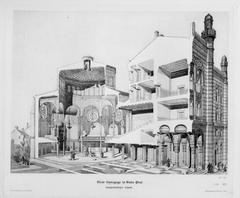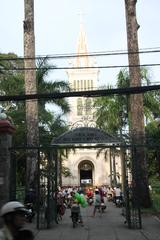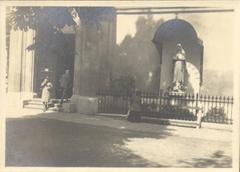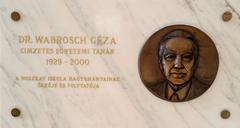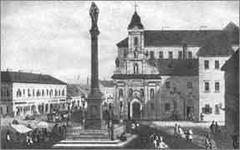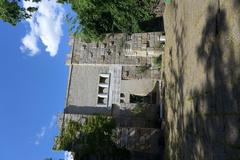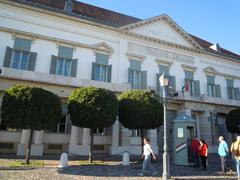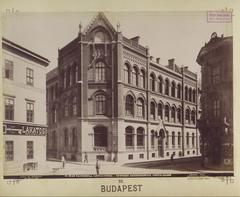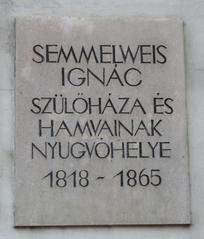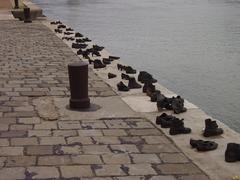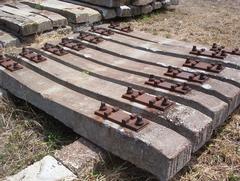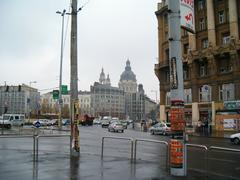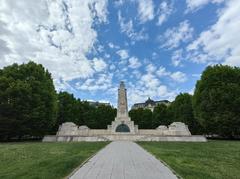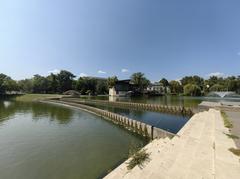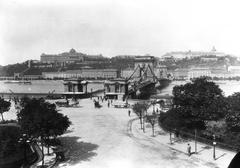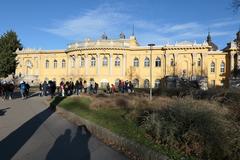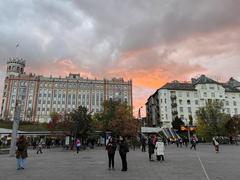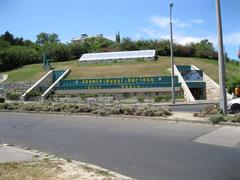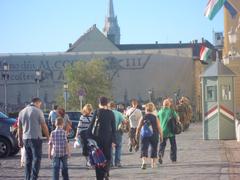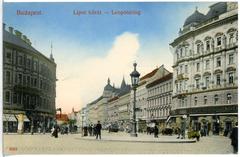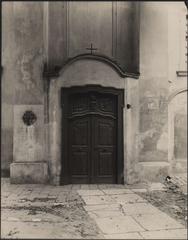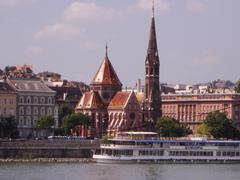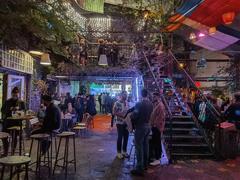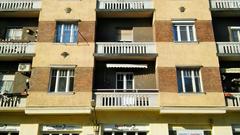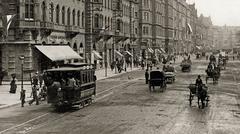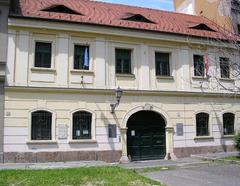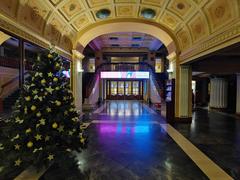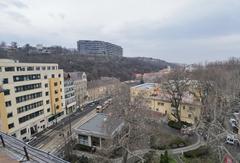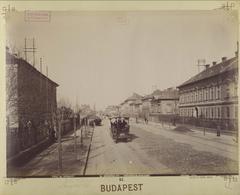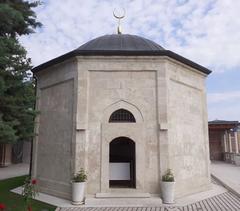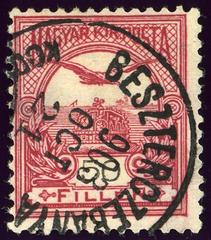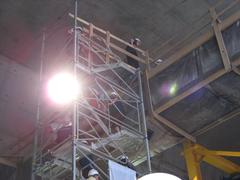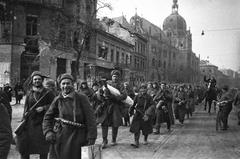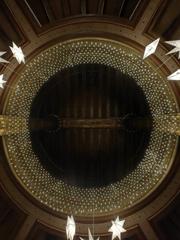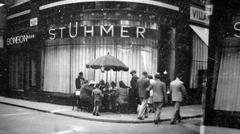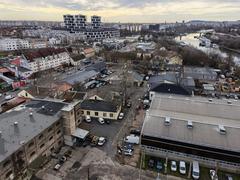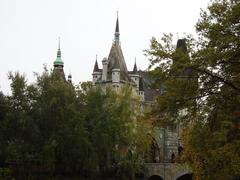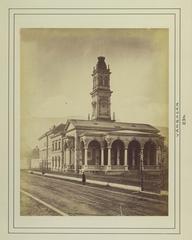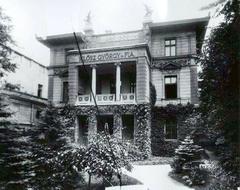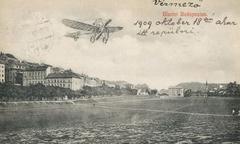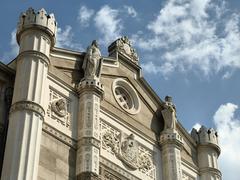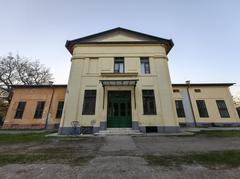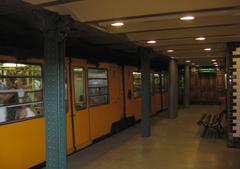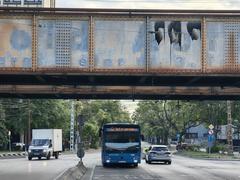
Pozsonyi Road Reformed Church, Budapest: Visiting Hours, Tickets, and Historical Significance
Date: 04/07/2025
Introduction
Situated in Budapest’s lively 13th district, the Pozsonyi Road Reformed Church (Pozsonyi úti Református templom) is a cornerstone of Hungary’s Calvinist heritage and a striking example of early 20th-century ecclesiastical architecture. Beyond its religious significance, this church is renowned for its humanitarian role during World War II and its ongoing commitment to community engagement. This guide presents a detailed history, practical visitor information, and cultural context to help you plan a meaningful visit to one of Budapest’s landmark sites (pestbuda.hu; welovebudapest.com).
Table of Contents
- Historical Overview
- Architectural Features and Urban Context
- Visiting Information
- Nearby Attractions and District Guide
- Community Role and Legacy
- FAQs
- Travel Tips and Practical Advice
- Conclusion
- References
Historical Overview
Early Congregational Roots
The Pozsonyi Road Reformed Church’s foundation is rooted in the post-World War I era, as Budapest’s urban population expanded and Reformed (Calvinist) communities sought new spaces for worship. The congregation began holding services in temporary venues in the early 1920s, notably in a local school gymnasium, before establishing a semi-permanent home on Tutaj Street in 1926 (pestbuda.hu). International Protestant support, particularly from Dutch Reformed communities, played a vital role in the congregation’s early development, providing both material aid and financial contributions.
Construction and Architectural Vision
Plans for a dedicated church on Pozsonyi út took shape in the late 1920s, culminating in the start of construction in 1937. Hungarian architects Imre Tóth and Jenő Halászy designed the building in a classicizing modern style, reflecting Calvinist values of simplicity while embracing modernist trends. Building on soft ground near the Danube required innovative engineering, including reinforced steel rods and concrete foundations (dailynewshungary.com). The church was consecrated in December 1940, marking the culmination of significant local and international collaboration.
Wartime Humanitarianism
During the Arrow Cross regime’s persecution of Jews and political dissidents in 1944, the Pozsonyi Road Reformed Church became a sanctuary for the persecuted. The church issued false documents, provided shelter, and actively resisted fascist violence, saving numerous lives. This legacy of moral courage is recognized as a defining chapter in both church and city history (welovebudapest.com).
Postwar Restoration
The church sustained damage during World War II but was promptly repaired, with regular services resuming by 1950 (dailynewshungary.com). Since then, it has remained a center for worship, social outreach, and cultural life, adapting to the needs of a diverse and growing community.
Architectural Features and Urban Context
The church’s architecture is a hallmark of Budapest’s interwar period. Its exterior features restrained ornamentation, clean lines, and a modest tower that echoes Calvinist humility. The interior is characterized by a bright, spacious nave, geometric stained-glass windows, and functional design elements that prioritize the congregation’s experience. Located on Pozsonyi út, the church forms part of Újlipótváros’s celebrated modernist landscape, surrounded by lively boulevards, cafes, and shops (welovebudapest.com).
Visiting Information
Hours, Tickets, and Tours
- Visiting Hours: Monday to Saturday, 9:00 AM–5:00 PM. Sunday services begin at 10:00 AM; visitor access may be limited during services. Check the official website for updates.
- Admission: Entry is free; donations are welcomed.
- Guided Tours: Available by appointment. Contact the church office to arrange in-depth tours covering history and architecture.
Accessibility and Facilities
- The main entrance is wheelchair accessible, with ramps and accessible restrooms.
- Restrooms are available but there is no café or gift shop.
- Families and groups are welcome; staff can assist with accessibility needs if contacted in advance.
Photography Policy
Photography for personal use is generally allowed outside of services. Please ask permission if photographing during private events or services and avoid using flash.
Nearby Attractions and District Guide
- Margaret Island: A scenic park ideal for walks, cycling, or relaxation—just 11 minutes on foot.
- Váci Road and WestEnd City Center: Shopping and dining options within a 15-minute walk.
- Hungarian Parliament Building and Ethnographic Museum: Architectural and cultural highlights within 25 minutes’ walk.
- Local Cafés and Shops: Újlipótváros is known for its vibrant café culture and independent stores.
Public transport connections include Metro M3 (Lehel tér), tram lines 4 and 6, and several bus routes. The area is pedestrian-friendly and ideal for exploring on foot.
Community Role and Legacy
The Pozsonyi Road Reformed Church is more than a historic building—it is a living community hub. It hosts regular worship services, cultural events, and social outreach initiatives, including support for disadvantaged groups. The church’s archives, including the Golden Book of Church Construction, testify to its history of international solidarity and local engagement (pestbuda.hu).
Listed as a protected monument (Identifier: 8343), its preservation is overseen by both religious and civic authorities (commons.wikimedia.org).
FAQs
Q: What are the opening hours?
A: Monday–Saturday, 9:00 AM–5:00 PM. Sundays for worship from 10:00 AM; visitor access may be restricted during services.
Q: Is there an admission fee?
A: No, entry is free. Donations are appreciated.
Q: Is the church wheelchair accessible?
A: Yes, including ramps and accessible restrooms.
Q: Are guided tours available?
A: Yes, by appointment through the church office.
Q: Can I take photos inside?
A: Yes, for personal use outside service times. Please be respectful and seek permission if in doubt.
Travel Tips and Practical Advice
- Plan Ahead: Check the latest visiting hours and book tours in advance.
- Transportation: Use Budapest’s efficient public transport system; consider a 24-hour travel card if making multiple trips (Trip to Budapest).
- Dress Modestly: Cover shoulders and knees, especially during services.
- Combine Visits: Pair your church visit with a stroll along the Danube or a coffee at a local café.
- Safety: Standard precautions apply; Budapest is generally safe for travelers (Budapest.city).
Conclusion
The Pozsonyi Road Reformed Church stands as a testament to the faith, resilience, and solidarity of Budapest’s Reformed community. Its striking modernist architecture, moving wartime history, and vibrant role in local life make it a must-visit destination for travelers interested in Hungary’s religious and architectural heritage. Whether you are drawn by its history, spiritual atmosphere, or community events, a visit here is sure to be rewarding.
For up-to-date information, guided tours, and event schedules, consult the official church website.
References
- pestbuda.hu
- welovebudapest.com
- dailynewshungary.com
- reformatus.hu
- commons.wikimedia.org
- Trip to Budapest
- Budapest.city


